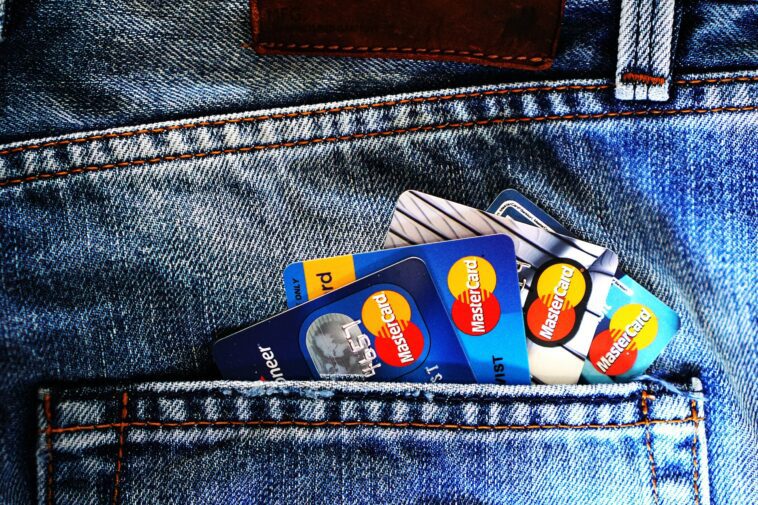If you plan to purchase a house, obtain credit or apply for a loan in the future, having an excellent credit score is paramount.
While there are steps you can take to increase your credit score quickly, building credit requires time and patience.
Pay Your Bills On Time
One of the best ways to raise your credit score is by paying all bills on time. Your bill payment history plays a significant role in both FICO and VantageScore, two popular credit scoring systems.
Establishing a routine of paying your bills on time will not only help you stay organized and relieve some stress, but it’s also cost-effective since late fees and penalties accumulate quickly.
Make a list of all your recurring bills and write down their due dates. Additionally, marking upcoming payments on your calendar can help ensure you stay within budget if needed.
If you have a lot of bills to pay, consider setting up an automatic bill payment plan through your bank. Many banks provide online tools that let you add bills directly into an account and have them deducted automatically from either checking or savings funds.
Another option is signing up for an online bill payment reminder service that will send you a text or email reminder when your next bill is due. Some of these services are free or charge a small fee, so it’s worth investigating your options.
To guarantee you don’t miss any payments, create an online checklist with all of your monthly bills. After each payment, mark it off the list to confirm you didn’t forget about a specific bill. This could be done using either an electronic spreadsheet or paper planner.
Bill paying should become part of your daily routine to encourage timely payment and improve your credit score. Not only does this prevent late fees and interest charges from occurring, but it may also help ward off financial crisis down the line by encouraging budgeting and staying organized with finances.
Review Your Credit Reports
Your credit reports are a snapshot of your financial history, made available to lenders and other businesses by the three primary consumer credit bureaus. Your report contains details about all your accounts with them, such as amounts owed and payment history.
Creditors use this data to assess your creditworthiness and whether or not you qualify for credit cards, loans or other financial products. It also contributes to the calculation of your credit score.
If you’re considering applying for new credit, a review of your credit reports can help determine if now is the right time to do so. It also gives you insight into any errors or other mishaps that could be negatively affecting your score.
Once a year, you are entitled to a complimentary copy of your credit report from each major bureau. During that time, you have the right to dispute any inaccurate or incomplete information on the report with each bureau; however, in order to do so you must contact each one separately for assistance.
Your credit reports contain your personal information and account details, such as the total amount owed on all open accounts and payment history with each lender. They also contain public records like bankruptcies or liens, plus any instances where accounts have been forwarded onto collection agencies.
Your credit history, which encompasses your credit card accounts and other types of accounts, is the largest section on your report. Here, you’ll find details such as credit limits and balances, plus when each was opened.
Your repayment history, including whether or not you made your payments on time, plays a significant role in calculating your credit score. Therefore, keeping this section up-to-date is essential as it’s one of the biggest factors used when calculating your scores.
To improve your credit score, strive to keep your debt to income ratio under 30% and pay down credit card balances promptly. Additionally, it’s wise to keep open any oldest credit accounts as these will help build a longer credit history.
Avoid High Credit Card Balances
High credit card balances can have a negative impact on your credit score. But, there are steps you can take to avoid them and boost your score in the process.
Paying your bills promptly and frequently will help to keep your balances low, improving your credit utilization ratio and raising your score within a few months.
Make sure to pay off your credit cards in full before the due date to avoid incurring interest charges and penalties on unpaid balances. Doing this can help prevent getting into a cycle of paying just enough each month and having an overwhelming debt on your cards that you cannot afford to repay.
Maintain a credit card balance under 30% of your overall credit limit when applying for new credit. Lenders often take into account this when deciding whether or not to approve your application for additional funds.
If you have multiple high credit card balances, it can negatively affect your score as your total credit utilization will be higher than the average. To minimize damage to your score, try not to make any new purchases with these cards until all of them are paid off completely.
Another way to keep your balances low is to request an increase in credit limit. Many credit card companies allow this online, which could improve your credit utilization ratio and lower interest rates at the same time.
Setting payment deadlines for your bills in a planner or calendar and adhering to them can help avoid late payments and make budgeting your finances much simpler.
Your credit card company may submit your balance information to credit reporting agencies each 30 days at the end of your billing cycle. However, it’s difficult to predict when this will take place unless you contact them and inquire.
Maintaining credit card balances under 30% of total available credit limits can help you get the best interest rates possible. It also enhances your credit score, making it more likely that you will be approved for a loan or credit card.
Don’t Apply for New Credit
New credit can be an integral factor in improving your credit score, but it also has the potential to damage it. Therefore, it’s best to avoid applying for new credit unless you absolutely must or have a compelling reason.
When applying for a credit card or loan, make sure you have an immediate need or good reason (e.g., to help pay off high debt). Before submitting an application for any type of credit card, do your research and determine how likely you are to be approved before submitting one.
Opening a new credit card can have two detrimental effects on your score: it decreases the average age of all of your accounts, which accounts for 15% of the calculation; and secondly, it shortens your credit history – another major component in calculating your overall credit score.
Fortunately, there are ways to boost your credit score without using new cards or loans. One strategy for doing this is paying down the credit card with the highest interest rate and consolidating it onto another card; saving money on interest and making it simpler to pay off balances.
Another way to raise your credit score is by making sure there aren’t too many inquiries on your report. Doing so could indicate a need for additional credit and increase the likelihood of being declined.
If you need to open a new credit card, consider taking advantage of low-interest or balance transfer offers. This will help manage your finances and boost your available credit limits.
In addition to helping manage your credit, a balance transfer can also improve the credit utilization ratio – another important factor when calculating your credit score. With time, this can improve your score if you don’t use the card often.
Finally, opening a credit card may be beneficial if it helps diversify your credit mix. This factor accounts for 15 percent of your score and shows lenders that you possess various forms of debt, making them better equipped to determine whether you are an effective credit risk.



